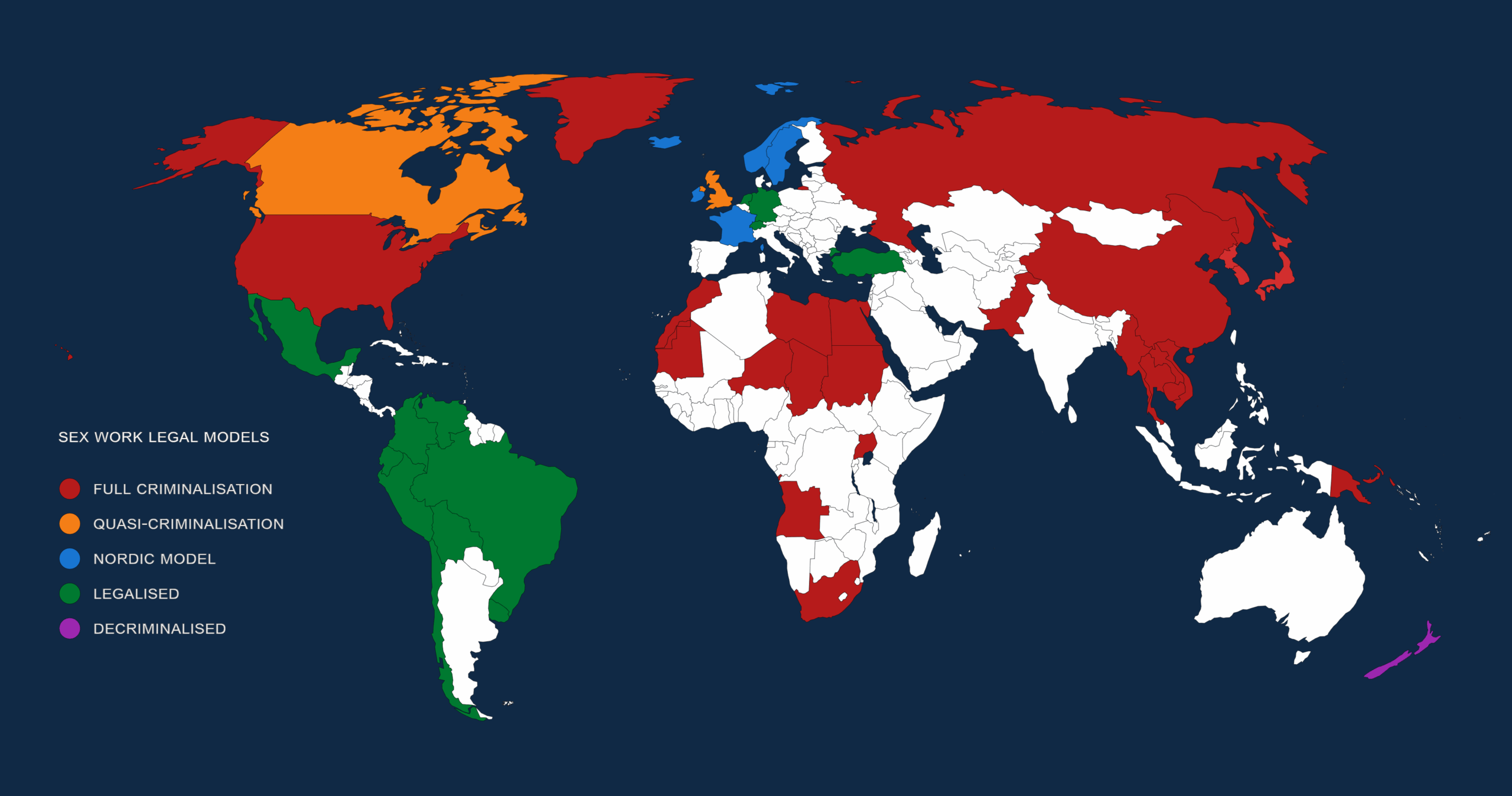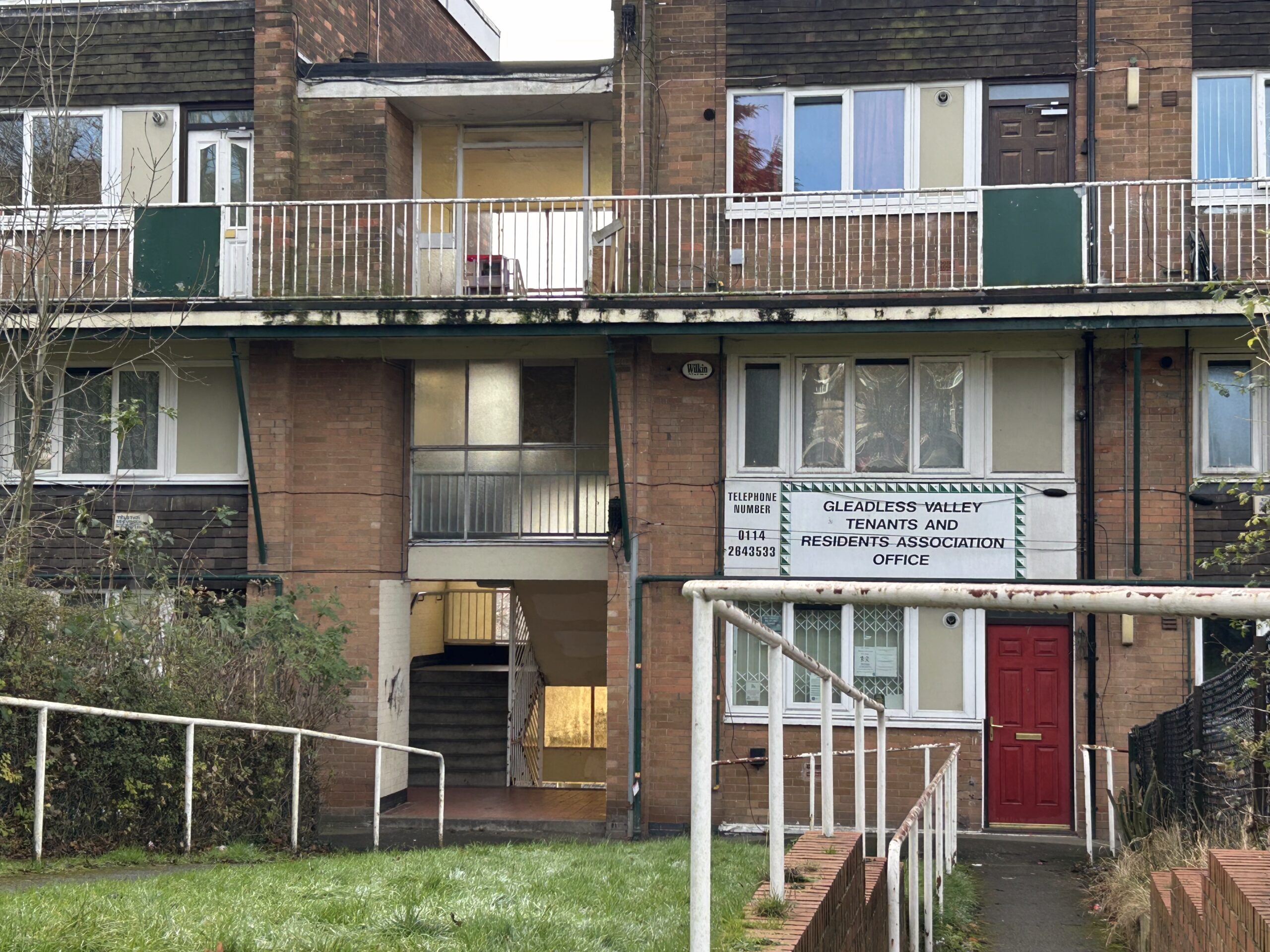The legal climate associated with sex work varies worldwide, with some nations opting for criminalised models, others operating under decriminalised systems, and others somewhere in-between.
England and Wales
In England and Wales, it is legal to sell sex between two consenting adults. However, certain elements have been criminalised:
- Soliciting, which means approaching someone and offering services as a sex worker
- Kerb crawling, which is the act of driving slowly along the edge of a road in search of a sex worker
- Brothels, which is a house or premises where people pay to have sex with sex workers
- Causing, inciting or controlling prostitution for gain, most closely related to the term ‘pimp’ – which is an individual who organises and controls the activities of sex workers, often taking a portion of the earnings
- Advertising if it is: graphic, carding in telephone boxes, or on the internet
- Trafficking for sexual exploitation
- Paying for sex with someone who has been coerced
- Paying for sex with a minor
This system is known as prohibition, or quasi-criminalisation – where sex work is not necessarily illegal as such, but the general intention is to discourage the practice using legal implications.
The legal climate of sex work in England and Wales creates a paradoxical situation, where buying and selling sex is legal between two consenting adults, but it is very difficult to do so without committing an offence.
Criminalisation around the globe
In many countries around the world, sex work is fully criminalised, meaning the sex worker, client, and any third parties – such as managers, landlords and drivers, are all criminalised. This model has been adopted in China, Pakistan and Russia, amongst others.
The Nordic Model sees an alternative approach – where those who purchase sex are the ones criminalised, as opposed to the sex worker, who is ostensibly decriminalised. This model has been adopted in Sweden, Norway, Iceland, France and Northern Ireland.
In this case, the sex worker is labelled as a ‘victim’, and the client is the ‘offender’. This legal model was informed by a radical feminist perspective on sex work, which views prostitution as violence against women.
Legalisation is a model found most commonly in the Netherlands and Germany, where sex work is legal, so long as it meets certain state-specific conditions, for example, the licensing of brothels or particular spaces. A ‘Red Light District’ is a certain space or area formally, or informally designated for sex work – with a famous instance of this being in Amsterdam.
In very few places internationally, sex work is entirely decriminalised – meaning all laws criminalising consensual sex work are removed. The sex worker, the client and third parties are decriminalised, and the sex industry is regulated by labour laws, as opposed to criminal laws.




